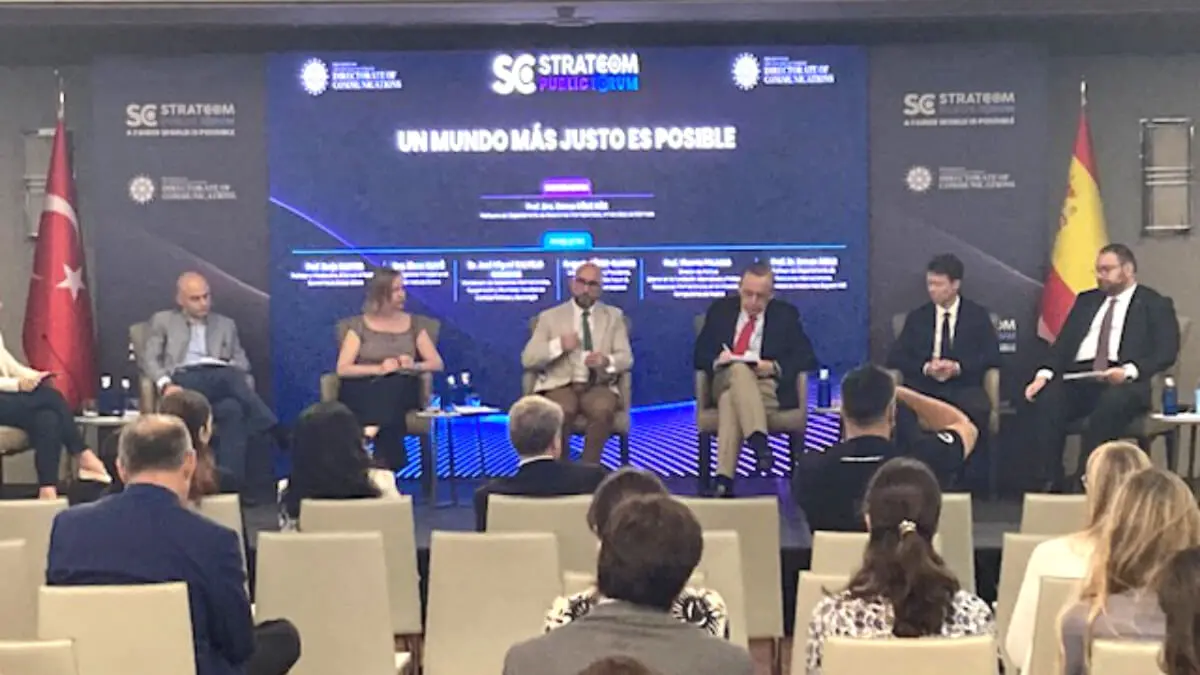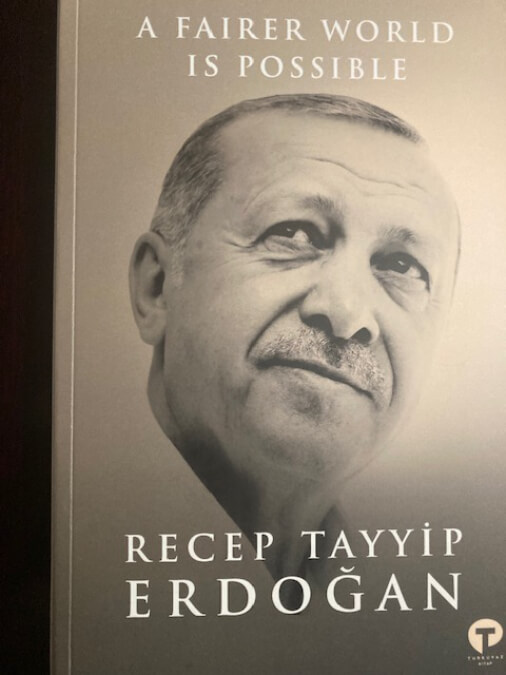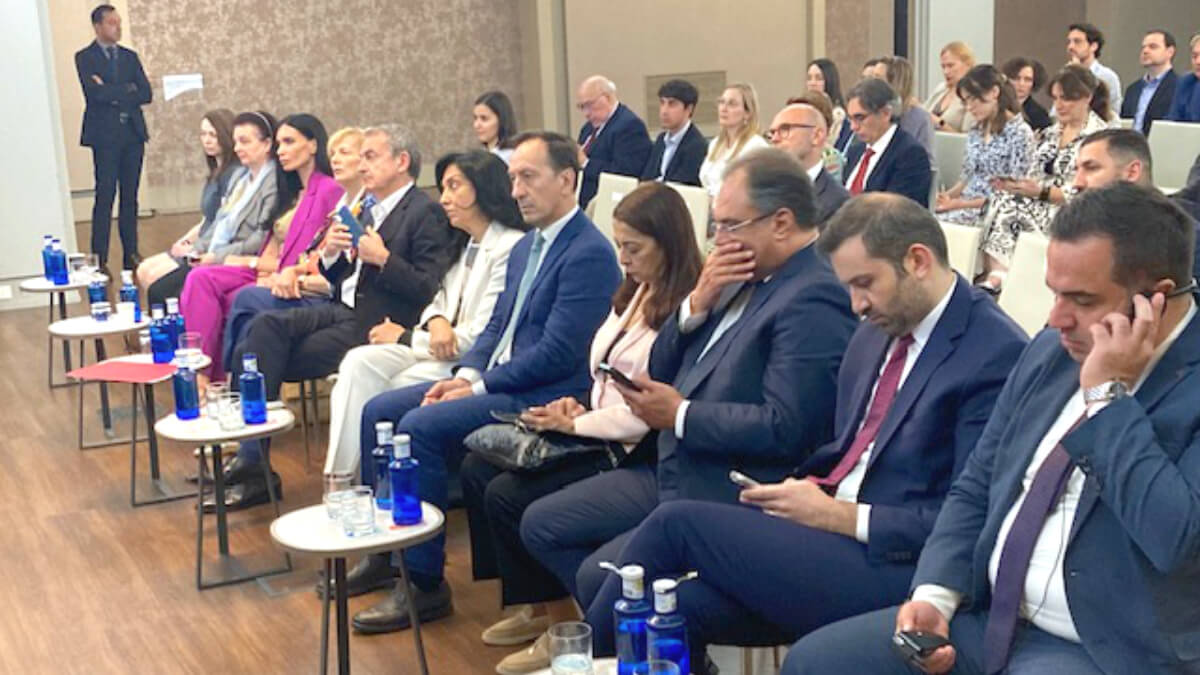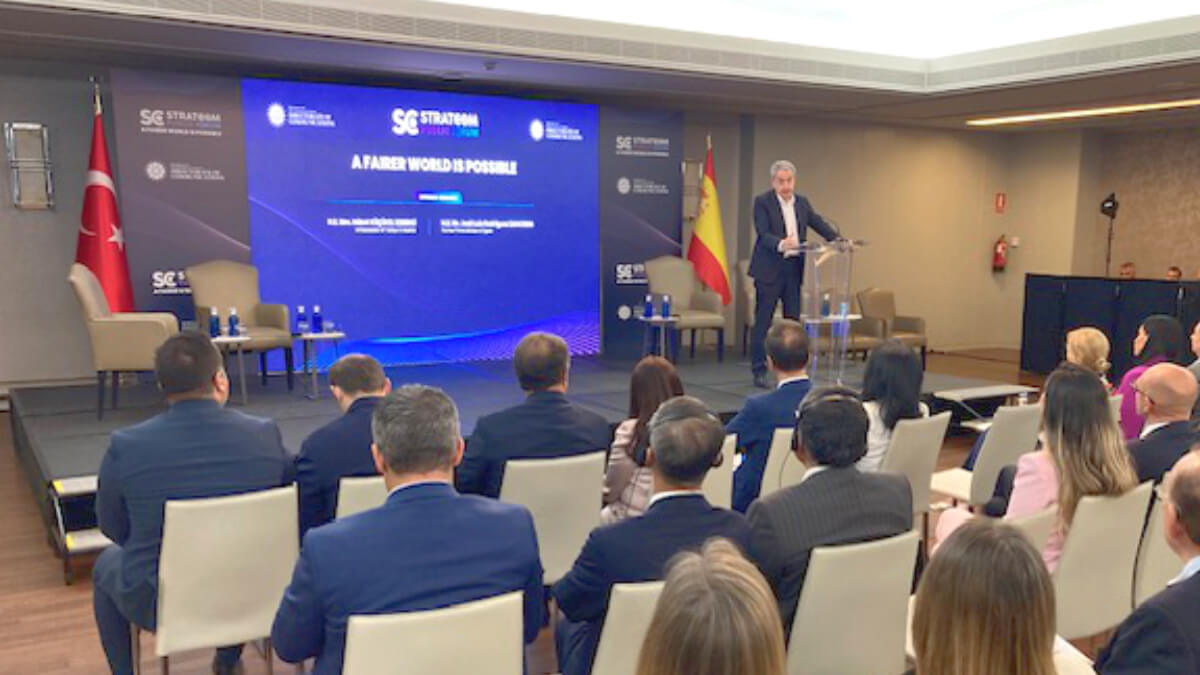Turkey demands reform of the Security Council

One need only review the daily news to conclude that both the UN and its Security Council have become institutions that, even as they continue to try to fulfil their original mission, are ignored by the powers that are currently vying for the new international order.
The Turkish president, without expressly undermining the United Nations but calling for its urgent reform, has been demanding a permanent seat on the Security Council for years, which should also include Brazil, India and South Africa if the political, economic and geographical weight of the world is to be rebalanced.
Among the actions promoted by Turkey around the world to this end is the organisation of conferences under the generic title ‘A More Just World is Possible’, taken from Erdogan's own book published in 2021. This week, it was Madrid's turn to host the conference, where the common denominator was precisely to support this demand in light of the wars and conflicts that currently threaten global security. Wars such as the one provoked in Ukraine by the Russian invasion, the one in Gaza and the one between Iran and Israel, none of which have been authorised by the Security Council.

The conference was opened by the Turkish ambassador to Madrid, Nüket Küçükel Ezberci, who described multilateralism and the urgent reform of international institutions as ‘critical issues’. She pointed to growing geopolitical tensions, economic instability, racism, Islamophobia and hate speech as factors that have contributed to such an alarming situation. She reaffirmed Turkey's firm stance in favour of more just, inclusive and effective global governance.
The corresponding debate, coordinated by Professor Gonca Oguz Gök of Marmara University, analysed the causes of the global crisis and possible ways out of it. It was opened by the vice-dean of IE School of Politics, Borja Santos, who delved into the interconnected nature of global crises and stressed the need for the UN system to be more innovative and inclusive, highlighting the crucial role played by civil society in representing the voice of discriminated individuals.

Iliana Olivié, from the Elcano Royal Institute, stressed that the climate, security and food crises are structurally interrelated. She described the reform of the UN Security Council as inevitable, advocating a reform that should prioritise not only representation, but also justice and equality. Along the same lines, José Miguel Calvillo, vice-dean of International Relations at the Complutense University, called for greater financial independence for the UN so that it can function more effectively.
For his part, Augusto López-Claros, executive president of the Global Governance Forum, pointed out that ‘today's international institutions were designed for a post-1945 world’ but are no longer able to respond to current threats such as the climate crisis, economic instability and growing security risks. Regarding the necessary reform of the UN, he proposed the creation of a ‘World System Council’ and a Human Rights Council with stronger powers.
Vicente Palacio, director of the Foreign Policy Observatory (OPEX), indicated that at the heart of the global governance crisis is the failure to fulfil the responsibility to protect democracy. He highlighted the power of the media to influence international public opinion through its reporting on wars, and advocated for the financing of global diplomacy, while describing the current Spanish-Turkish cooperation in the use of artificial intelligence for the benefit of humanity as promising.

The panel was closed by Dr Erman Akilli, from Haci Bayman Veli University in Ankara, who referred to Erdogan's slogan - ‘the world is bigger than five’ - as an important warning for addressing the structural problem in the representation and legitimacy of the United Nations. He also explained that the governance model to be built must be more just and participatory and therefore integrate countries that are not part of the group of major powers in decision-making processes.
The former Spanish Prime Minister, José Luis Rodríguez Zapatero, who together with Erdogan himself promoted the Alliance of Civilisations twenty years ago, also spoke. He regretted that ‘the years of greatest pro-European enthusiasm in Turkey were not taken advantage of to integrate it into the EU’ and defended a limitation on NATO spending, arguing that ‘it is more than enough that an organisation that represents only 15% of the world's population accounts for 52% of global defence spending’.
In his view, greater integration of Turkey into the EU could have prevented conflicts such as those between Israelis and Palestinians in Gaza and between Ukraine and Russia. Zapatero identified the 2008 NATO summit in Bucharest as the moment when the Russian invasion of Ukraine was forged, when US President George Bush, ‘to the surprise of everyone present, including myself, decreed that Kiev would become a member of NATO’.

Zapatero's intervention, on the eve of the Hague summit and Pedro Sánchez's departure from the consensus to increase the percentage of investment in defence, sounded like a resounding endorsement of the former president, whom many consider his political disciple.









